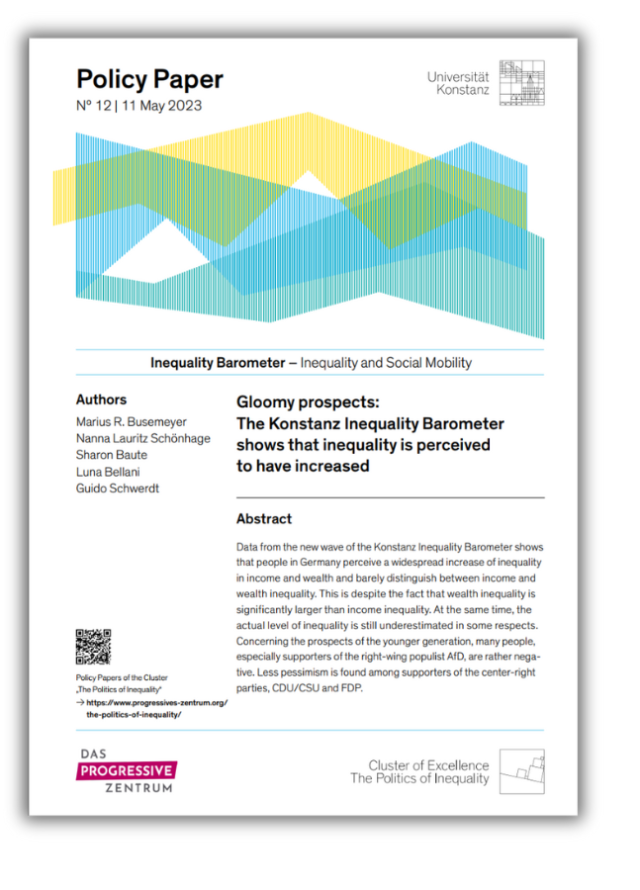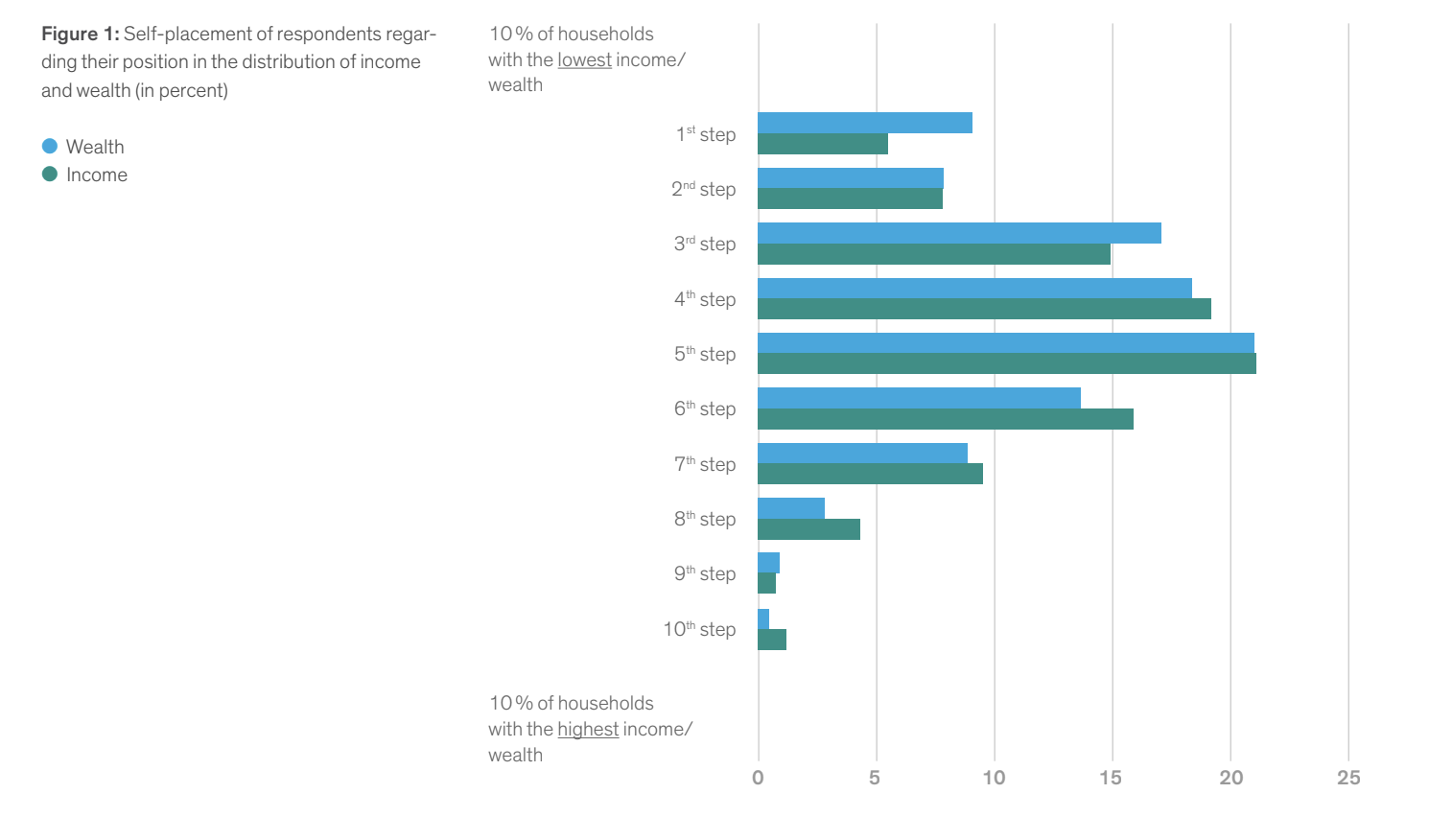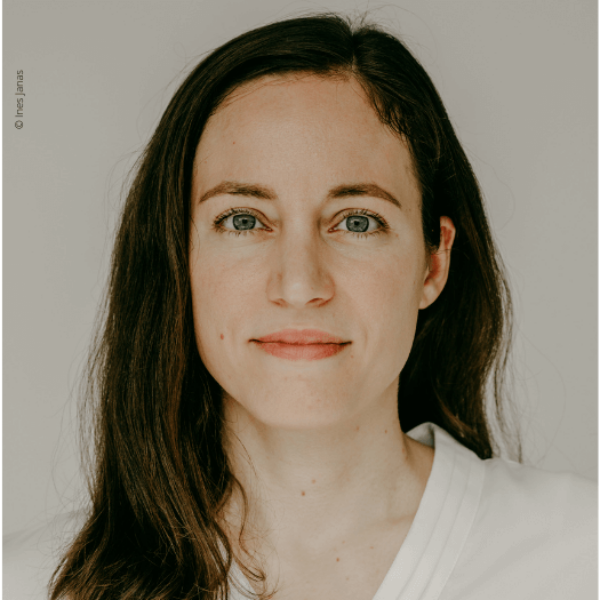Summary
The German public greatly underestimates how unequally income and wealth are distributed in Germany. People with higher incomes and wealth tend to underestimate their financial situation, while in turn, those with less financial means tend to overestimate their standing relative to the overall population. The result of these misjudgments is that many more people in Germany consider themselves to be middle class than is objectively justified, and the true extent of inequality in Germany is generally underestimated. These are the findings of a large-scale survey conducted by the Cluster of Excellence The Politics of Inequality at the University of Konstanz in cooperation with the Berlin-based think tank Das Progressive Zentrum.
Hardly any distinction between income and assets
The study also shows that when asked about their relative position, respondents by and large do not distinguish between income and wealth distributions. This is remarkable given that past studies have clearly shown the distribution of wealth in Germany to be significantly less equal than the distribution of income. The ‘top five percent’ own 41.6 percent of total assets (real estate, securities, other financial assets), but ‘only’ 15.8 percent of income. However, as this survey shows, many respondents are not aware of this gap.
Greater sense of inequality in Eastern Germany
Looking at long-term developments, 71 percent of respondents believe that inequality has increased since the year 2000. Only 17 percent think it has decreased. Twelve percent believe it has remained the same. Asked whether inequality has increased more in Germany than in other European countries, a relative majority of 35 percent think it is ‘somewhat higher’ in comparison. This is quite close to reality: according to Eurostat, income inequality in Germany is slightly higher than the EU average.
When analysing respondent’s answers by region, considerable differences become apparent: Eastern and Western Germans differ significantly in their assessment of inequality in their country. In Eastern Germany, more people believe it to be ‘somewhat’ or ‘much’ higher than in other European countries (a total of 54 percent in the east compared with 49 percent in the west). The split is even greater when asked about regional disparities: 53 percent of respondents in the east believe that inequality in their home region is somewhat or much higher than in other regions of Germany, compared with 34 percent in the west.
Recommendations
Based on these findings, the authors of the study formulate two recommendations for action. First, the results show that many individuals in Germany misjudge their financial situation compared to the population as a whole. “In the politically charged debates on inheritance and wealth taxes, for example, it is clear that many middle-class people mistakenly believe that they are directly affected by such measures. They underestimate how relatively rich others are and how relatively poor they are,” explains co-author Sharon Baute. The first recommendation for action is to raise awareness in public debates about the particularly unequal distribution of wealth. This should contribute to a more informed public perception.
Second, the study reveals widespread pessimism about the long-term development of inequality in Germany, especially regarding the future prospects of younger generations. It seems paradoxical at first that respondents underestimate the extent of inequality while at the same time being overly pessimistic about long-term trends and prospects. However, this apparent contradiction is resolved when we consider that opinions about trends and prospects are less likely to be based on respondents’ actual life experiences and more likely to be influenced by politically motivated ‘framing’. The second recommendation for action is therefore to counter public pessimism with a measure of optimism. This could be achieved, for example, through targeted policy initiatives and accompanying communication on issues such as social mobility, future opportunities, innovation, and education.
Authors
When everyone thinks they’re middle-class: (Mis-) Perceptions of inequality and why they matter for social policy
Source of healing or bone of contention? Trust in the German healthcare system during the coronavirus crisis
When everyone thinks they’re middle-class: (Mis-) Perceptions of inequality and why they matter for social policy
When everyone thinks they’re middle-class: (Mis-) Perceptions of inequality and why they matter for social policy

Authors

We develop and debate progressive ideas and bring together leading actors who turn thoughts into action. Our think tank’s goal: making the just transformation a reality. ▸ Learn more






